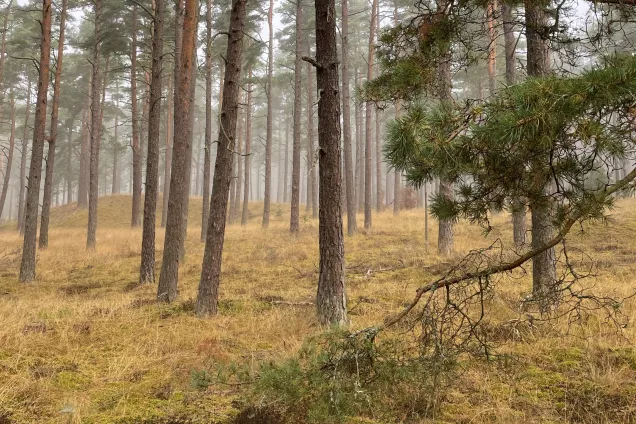BECC annual report 2022/2023
Navigate your way to the different chapters of our annual report by clicking the table of content below, or by using the menu.
- Members 2023
- Faculties and departments 2023
- Publication 2022
- External funding 2022/2023
- In the Spotlight: Bringing Biodiversity to Policy and Society
- Policy Councils and more
- Botanical gardens
- In the Spotlight: Using and Supporting Infrastructures for Monitoring Biodiversity Changes
- Monitoring schemes: Birds, butterflies, and bumblebees
- Following climate and biodiversity at the Latnjajaure field station – a part of the International Tundra Experiment (ITEX)
- In the Spotlight: Observing the CBD Global Framework for Biodiversity Being Agreed Upon
- In the Spotlight: Fundamental Research for Keeping Carbon in the Ground
- BECCs role in fostering successful young researchers
- In the Spotlight: Research Infrastructures for Observation of Climate Gases and for Contributing to International Evaluations
- The Integrated Carbon Observation System (ICOS)
- BECC’s input to international climate reports: The Lund-Potsdam-Jena General Ecosystem Simulator (LPJ-GUESS)
- In the Spotlight: Involvement in IPCC
- In the Spotlight: Using Nature-based Solutions for Climate Adaptation
- In the Spotlight: Forests and Its Different Values
- In the Spotlight: Power, Justice and Legitimacy of Environmental Governance: The Case of Environmental Human Rights Defenders
Enhancing Societal Relevance and Mutual Learning
- Networks of Researchers and Societal Actors
- LU Land – unique networking opportunity for researchers and stakeholders
- Gothenburg Global Biodiversity Centre
- Citizen Science
- Broadening the Discussion Through Culture
ClimBEco Graduate Research School
Fostering Policy Competence: BECC Grand Seminars
Partnering with Climate Researchers: Swedish Climate Symposium
- Project Grants
- Prizes and Distinctions
- Highly Cited Researcher
- PhD Theses
- 2022
- 2023
- BECC Board
- Steering Group at UGOT
- Grand Challenge Leadership
- Biodiversity under Global Change
- Carbon Cycle & Climate Change
- Ecosystem Services under Global Change
- Support organisation at the Centre for Environmental and Climate Science, LU
- Scientific Advisory Board
- Stakeholder Reference Group
Introductory words
Since the start in 2010, BECC has diligently worked towards fulfilling its vision: to provide a world-leading research environment that brings together excellent research and training at Lund University (LU) and the University of Gothenburg (UGOT), to address society's need for knowledge about the dynamics between biodiversity and ecosystem services in a rapidly changing world.
By assuming a strategic role, our research platform has served as a catalyst. We have successfully supported the development of our research groups, as well as interactions between them, to increase their efforts and abilities to address society's need for knowledge to tackle the social-ecological challenges of conserving and sustainably utilising biodiversity and ecosystem functions in a rapidly changing world.
Realising the needs for collaborations between excellent scientists from different subjects, as well as interactions with stakeholders, we have promoted disciplinary, interdisciplinary, and transdisciplinary research. There have been positive developments of BECC across natural and social science subjects, demonstrated by BECC’s ability to maintain and increase publication of high impact research. Earlier, interdisciplinary research has been hampered by an imbalance between disciplines within BECC. We are therefore proud to have pushed the social science aspects of our organisation by supporting the expansion of the Environmental group at the Department of Political Science at LU and strengthening the Environmental Economy group at the Department of Economy at UGOT. Our continuous promotion of interactions with stakeholders has benefited research relevance as demonstrated by our track-record of involvement in important societal processes.
As a transversal organisation bridging multiple departments, BECC has developed organically, leveraging agility and foresight to identify and capitalise on opportunities that go with our vision. For example, BECC was a major player when establishing other platforms, such as the Graduate Research School ClimBEco, the collaboration initiative LU Land, and the LU Profile Area Nature-based Future Solutions. BECC was also involved in setting up and supporting the now well-established Gothenburg Global Biodiversity Centre at UGOT. Driven by the urgency of our Grand Challenges, BECC is looking forward to tightening the bonds to this evolving ecosystem of complementary platforms, while at the same time ensuring that the different platforms keep and strengthen their respective identities.
A key to BECC’s success has been the combination of being an organisation bridging multiple departments with organisational stability stemming from being hosted by the Centre for Environmental and Climate Science (CEC) at LU. This has allowed continuity in our efforts to develop cross-disciplinary research, collaboration, and education. Building on these principles, we in the coming years foresee a renewal of BECC to ensure that we continue to be one step ahead when it comes to developing new research avenues, advancing science in collaboration with societal actors and solving the complex challenges of our time.
We are grateful for our researchers, creating the vibrant and ground-breaking academic environment that we are, and for their determination to persevere in the quest for answers and solutions to our Grand Challenges. Together we continue bridging the divides within academia and with the rest of society. Our research is more important than ever.
BECC coordinator Henrik Smith and BECC coordinator at UGOT Mats Björkman

Pdf-version of the annual report
Please contact research coordinator Josefin Madjidian if you are looking for the annual report as a pdf. for print.
josefin [dot] madjidian [at] cec [dot] lu [dot] se (Mail to Josefin Madjidian)



